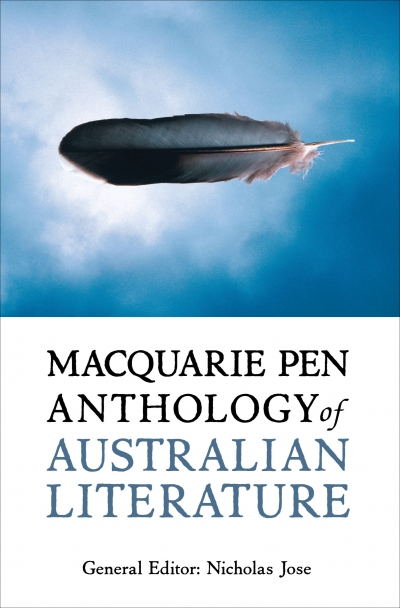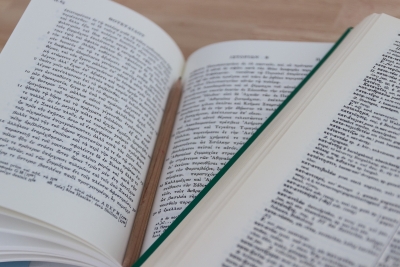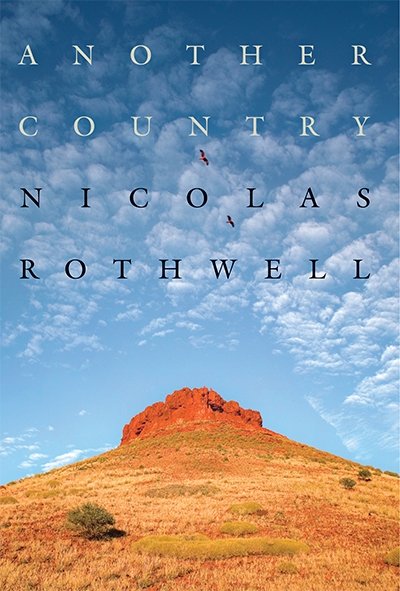Nicholas Jose
'Bobbin Up was written in 1958 during eight weeks of the coldest Sydney winter on record', recalled Dorothy Hewett in her introduction to the Virago Modern Classics reprint of her ...
... (read more)Books of the Year is always one our most popular features. Find out what our 41 contributors liked most this year – and why.
... (read more)The Choir of the Just
Peter Craven’s review of the Macquarie PEN Anthology of Australian Literature has generated much comment, some of it favourable, some not. Much of the latter was concentrated on the Internet, with the kind of reflexive, personality-driven, bien-pensant umbrage that often passes for literary discourse in the blogosphere. James Joyce’s phrase ‘the choir of the just’ springs to mind. What comes through is a shrill note of intolerance, the implication that because certain people disagree with other people’s views, the latter should not be aired. So much for liberal values.
... (read more)Dear Editor,
In responding to Peter Craven’s broad-brush review of the Macquarie PEN Anthology of Australian Literature in last month’s ABR, which I suppose you ran for the sake of controversy, let me touch on the wider debate about what’s in the book, and why.
In compiling such an anthology, where you obviously can’t have everything, a principle of metonymy comes into play, in which the one is asked to stand for the many. In the Macquarie PEN, this is a principle of inclusion, not exclusion. Where space permits no more, authors are indicated by association or citation, making the whole greater, we hope, than the sum of the parts, more open and many-layered, as anyone will discover who reads the essays and author introductions in the book. Thus Gerald Murnane’s fiction is implied by a superb piece of non-fiction, ‘Why I Write What I Write’, showing him at his best. The only other answer to why the editors did not choose this particular work is that they chose that one, after careful consideration not only of the work itself but of its interaction with other works in the collection. Nothing’s perfect, of course. If readers have suggestions or corrections, we’d be grateful to hear them. See the feedback link on the home page of the anthology website: www.macquariepenanthology.com.au.
... (read more)Macquarie Pen Anthology of Australian Literature edited by Nicholas Jose
The physiotherapist I saw for a pinched nerve in my back not long ago turned out to be an avid reader of fiction. She would work her way through the Booker shortlist each year. But she wouldn’t read Australian novels. As she pummelled my knotted flesh, I wondered if this was the right moment to admit that I was a person who wrote such things. She explained that, having moved to Australia from South Korea as a twelve-year-old, she had been made to write essays at school about a book called A Fortunate Life that she found as painful as I was finding her pressure on my spine.
... (read more)The world we live in provides us with a great deal of information that is not really intended to inform. We must be informed, for example, that a phone call is being recorded for training purposes. Thus language becomes an accessory to the black arts of spin, propaganda, manipulation and arse-covering. Words are twisted and violated, making it difficult to recover the meanings, the distinctions, that we need. What was clear becomes murky, while murkiness is hidden behind a veneer of false clarity. Protean language becomes complicit in the world’s nefarious purposes.
... (read more)Dennis Altman
In any given year we will read but a tiny handful of potential ‘best books’, so this is no more than a personal selection. Here are two novels that stand out: Stephen Eldred-Grigg’s Shanghai Boy (Vintage) and Hari Kunzru’s Tranmission (Penguin). Both speak of the confusion of identity and emotions caused by rapid displacement across the world. The first is the account of a middle-aged New Zealand teacher who falls disastrously in love while teaching in Shanghai. Transmission takes a naïve young Indian computer programmer to the United States, with remarkable consequences. From a number of political books, let me select two, both from my own publisher, Scribe, which offers, I regret, no kickbacks. One is George Megalogenis’s The Longest Decade; the other, James Carroll’s House of War. Together they provide a depressing but challenging backdrop to understanding the current impasse of the Bush–Howard administrations in Iraq.
... (read more)



